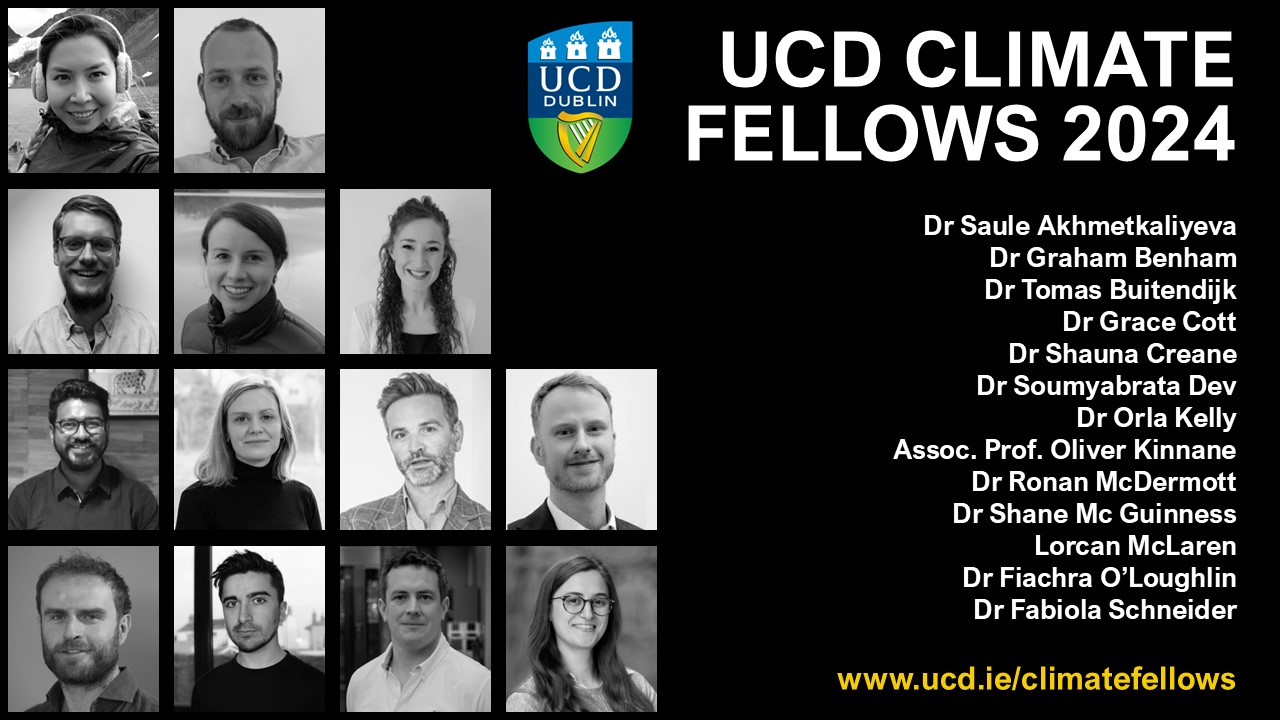Earth Institute Early Career Researcher Forum on navigating interdisciplinary research
In March 2023, the Earth Institute Associate Member Committee organised a highly engaging Early Career Researcher Forum, dedicated to exploring the intricacies of interdisciplinary research. Collaborative, interdisciplinary research is increasingly seen as an effective way to address complex societal and environmental challenges, bringing together knowledge and methodologies from different disciplines.
This hybrid event brought together three UCD researchers at different career stages talking about their interdisciplinary environmental, climate and sustainability research – sharing their experiences, discussing challenges, and offering strategies for navigating the complex landscape of interdisciplinary research. Short presentations were followed by a chaired discussion exploring practical aspects of collaborating in this way, career considerations, routes to policy and impact as well as publishing interdisciplinary research.
Earth Institute Director Tasman Crowe expressed his enthusiasm about and support for the event, saying:
“The Early Career Researcher Forum provided an invaluable platform for researchers to connect, exchange ideas, and learn from one another. Interdisciplinary research is crucial in addressing complex global, regional and national environmental challenges, and this event facilitated the sharing of valuable insights and strategies.”
Tasman also noted the timeliness of the event, with a “rising tide for interdisciplinary studies” especially in terms of environmental research.
The forum began with a series of individual presentations followed by a panel discussion featuring three UCD researchers and Earth Institute members who have successfully pursued interdisciplinary projects with the discussion chaired by Tasman Crowe.
The first presentation was by Dr Aparajita Banerjee, an interdisciplinary researcher with a background in environmental and energy policy. Aparajita shared her interdisciplinary journey which began with her PhD at Michigan Technological University, USA in small social science school in a largely technological university. Aparajita discussed how, throughout her career, she has collaborated mostly with sociologists and public policy scientists but also with colleagues from diverse disciplines including engineers, urban planning, geosciences, humanities, economists, forestry, geography, archaeology, biologists and soil scientists. Aparajita has also worked on projects centred around interdisciplinary research on the environment including a number of Strategic Priority Support Mechanism (SPSM) projects funded by the Earth Institute as well as Horizon Europe projects.
Next up was Dr Sonia Negrao, who has extensive experience in interdisciplinary research spanning genetics, bioinformatics, and chemistry, emphasized the importance of effective communication when working across academic disciplines. She highlighted her involvement in ongoing interdisciplinary projects funded by Science Foundation Ireland (SFI) and the DIVERSICROP initiative, which harnesses the potential of underutilized crops through collaboration among biologists, agriculturists, historians, health experts, economists, and various stakeholders.
Following on from Sonia, Dr Meriel McClatchie, an archaeobotanist who specializes in analysing preserved plant remains to study past societies and environments, shared her journey of collaborating with specialists from other disciplines to better understand ancient farming practices. She praised UCD's role in nurturing interdisciplinary collaborations and highlighted the CROPREVIVE project, which merges archaeological, historical, and plant science data to advance knowledge in the field.
The panel discussion was followed by a dynamic question and answer session, where participants delved into the benefits and challenges of interdisciplinary research. Aparajita emphasised the need for a broad interdisciplinary lens to approach environmental problems, noting that once researchers engage in interdisciplinary work, it becomes challenging to return to a single-discipline approach. Sonia highlighted the tremendous fundability and fresh perspectives that arise from interdisciplinary collaborations, while Meriel emphasised the personal and professional growth that comes from learning about new disciplines and refining one's approaches.
The discussion also addressed the challenges of compromise, communication, and managing workloads in interdisciplinary teams. Strategies such as building a common vocabulary and dedicating ample time for meetings, discussions, and social interactions were identified as essential for successful collaborations.
Tasman Crowe expressed his satisfaction with the outcomes of the forum, stating,
“The Early Career Researcher Forum has undoubtedly empowered participants with practical skills, insights, and valuable connections to thrive in interdisciplinary research. This event reflects the UCD Earth Institute's commitment to fostering a supportive environment and advancing interdisciplinary research.”


